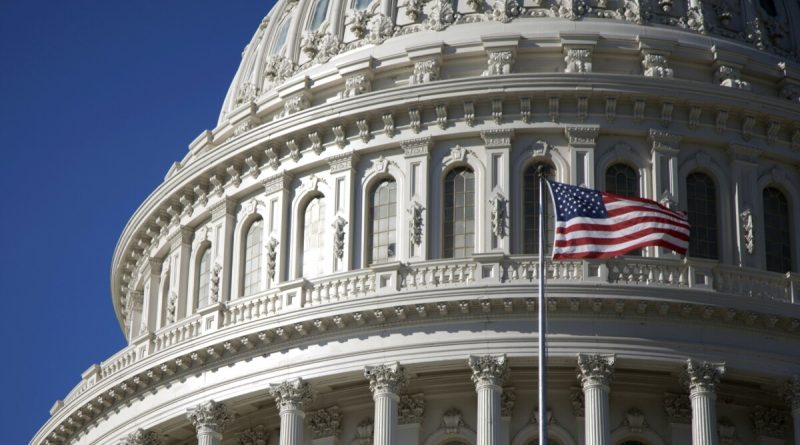Congress passed a bill to temporarily fund the government
The House of Representatives on Thursday approved a temporary bill to fund the federal government through early March and avert a partial government shutdown, sending it to President Joe Biden for his signature.
The bill passed with 314 votes, with 108 congressmen, including 106 Republicans and two Democrats, voting against it.
Earlier Thursday, the Senate passed the bill quickly to make it before the deadline next weekend. There, 77 voted in favor and 18 voted against it.
“We have good news for America. There will be no government shutdown on Friday,” Senate Democratic Majority Leader Chuck Schumer said on the Senate floor just before the vote.
Both chambers fast-tracked the vote because of a blizzard forecast for Friday that could prevent lawmakers from leaving for the weekend.
The Democrat-majority Senate and the Republican-controlled House of Representatives are far behind on their major responsibilities to fund the government for the year (the fiscal year began Oct. 1).
Lawmakers have struggled to delay passage of the annual budget to get more time to debate it. Schumer and his Republican counterpart in the House, Mike Johnson, agreed earlier this month to a spending level of $1.59 trillion for the year that ends Sept. 30. Democrats say the amount actually agreed upon is $1.66 trillion.
The intense battle between House Republicans seeking significant spending cuts and Democrats comes against the backdrop of a $34.4 trillion national debt that is growing rapidly and is causing concern in part because of the size of interest payments for which the Treasury Department is responsible.
This third temporary funding bill – known as a “continuing resolution” or “CR” – would simply extend last fiscal year’s spending through two deadlines – March 1 and March 8 – to complete payments to various government agencies.
Ahead of the vote, Democratic Rep. Josh Gottheimer outlined the consequences of a possible government shutdown, including a worsening of the situation for veterans applying for disability benefits, a possible suspension of airplane safety inspections, and a freeze on Agriculture Department loans, as well as other services. In addition, about 1 million military personnel would temporarily miss paychecks.
Sen. Susan Collins, the senior Republican on the Appropriations Committee, expressed frustration at the length of time it took to divide the money into 12 bills containing a full-year budget, saying: “This has been dragging on for a long time, and I really don’t know why.”
In the House, Johnson could face criticism from uncompromising members of his party who oppose passing temporary funding bills without significant spending cuts.
You may be interested: Hunter Biden pleaded not guilty in tax fraud case
